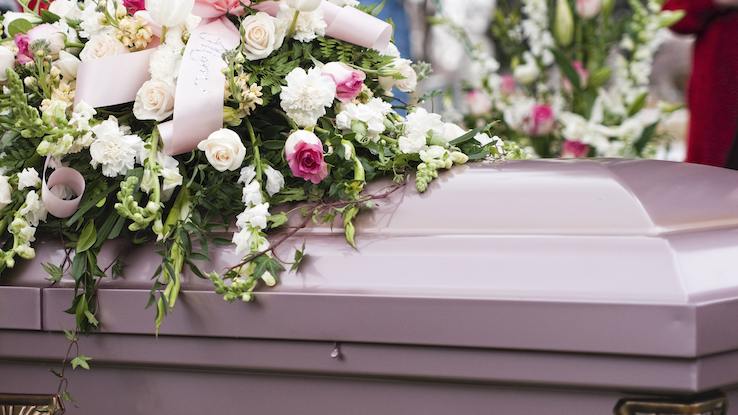
Planning a funeral can be a trying time both emotionally and financially. There are many details to consider, and it’s normal for your mind to want to focus elsewhere while you’re faced with a variety of decisions to make in a short period of time. Understanding the different elements that are involved in the overall cost of preparing for a funeral can help you better plan for and anticipate various needs and feel more secure about going through the process.
Cost Paths for Different Decisions
The deceased person’s wishes regarding the way they want their body handled will determine a portion of the costs. If their wish is to be buried, this will cost more than being cremated because of the additional items and services you’ll need to purchase, which can range from a burial plot to a casket to embalming. Although it’s also possible to purchase a plot for cremated remains and a container to store them in, these things are generally much smaller and thus do not incur the higher costs associated with a traditional burial.
On average, according to data from the National Funeral Directors Association, a funeral costs about $8,800, but this is merely an average and doesn’t reflect the large variance in services and supplies needed for the event. This number also includes pricing for traditional services and items like the casket, but not for the cost of a cemetery plot. Funeralwise notes that, overall, the typical cost for a traditional funeral with visitation services, a memorial service and burial in a cemetery is about $15,000. For a traditional funeral and memorial service with a cremation, the cost is less, at around $10,000.
The decision to host a memorial service is another primary factor that can elevate or lower the cost of a funeral. If you choose a burial without a memorial service or visitation, you can expect to pay around $10,000. When opting for a cremation without a memorial service or visitation, the cost drops to around $2,000.
What Influences the Cost of Funeral Services?
A number of factors combine to determine the overall price of funeral services. Aside from the bigger decisions like hosting a memorial service, there are small details to plan for. According to the Federal Trade Commission, funeral directors are allowed to charge a variety of different fees for the services they provide, starting with a basic service fee that covers tasks like obtaining death certificates, sheltering the remains and coordinating various elements of the funeral. This is a non-negotiable fee that applies to any contract you enter with the funeral home, regardless of other services rendered.
However, there’s also a variety of smaller-detail services that you can select or opt out of when planning a funeral, and these too determine the final cost. They include elements like the quality of the casket, burial vault and other materials, and they also include services like transporting the body in a hearse, doing makeup and hairstyling for the deceased, embalming the body and purchasing floral arrangements. Unlike the basic service fee, you have the right to decline any of these and other services when organizing the funeral.
Your geographical area can also influence the cost of funeral services. Taking into account elements like property values and available space, for example, purchasing a cemetery plot costs more in some areas of the country than others. A funeral service calculator can help you better anticipate costs for services based on average industry and regional prices.
Managing Funeral Costs
It’s important to honor the deceased’s wishes when it comes to making decisions about the different elements of a funeral service you’ll spend money on. However, it is possible to save some money while planning and purchasing for the funeral. These tips can help you effectively manage the costs while creating a dignified service that celebrates the deceased’s life.
Set a budget. It’s important to understand any cost constraints you may be working with. Did the deceased purchase a funeral insurance policy that’ll cover some or all elements of the service? If so, let this be your general guideline for the upper limit of spending. If not, the money may be drawn from the deceased’s estate, and you can work with family members or the executor of the estate to determine appropriate spending limits. If the deceased left no instructions for burial, it’s important to take some time to think about which components of the service would be most important to them and work within the budget to achieve those goals.
Find out which elements may already be covered. This might include funeral insurance, but maybe the deceased also pre-purchased a plot or has a space next to a spouse who’s already been buried. It’s also possible to prepay for some elements of the service, such as the cost of cremation. This is called a pre-need contract. Determine what basics you may not need to pay for so you can focus on other elements you’ll opt for.
Don’t be afraid to shop around. It may feel a little strange doing cost comparisons for funeral items, but if the deceased doesn’t have an existing relationship with a funeral home where they’ve prepaid for items, it can help you save money on services to check pricing at various establishments. If you’re having a difficult time asking questions and negotiating because of your grief, bring along a trusted person to help you handle some of the details. Remember not to feel pressured to purchase the most expensive items, which funeral homes sometimes try to do; have your friend ask to see things like caskets that are more affordable if you’re having trouble.





